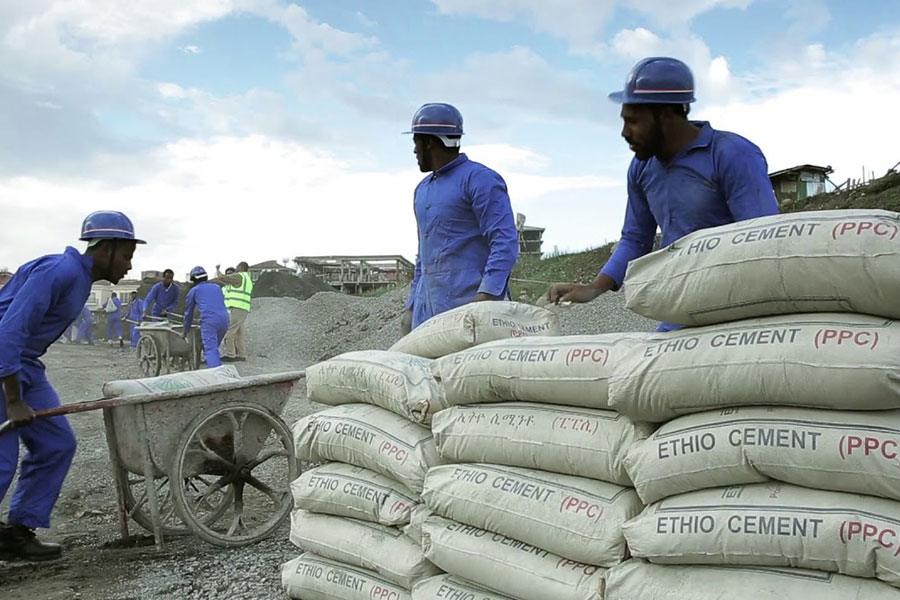
Radar | Sep 28,2019
Feb 27 , 2021
By Christian Tesfaye
For the uninitiated, income and wealth could mean the same thing. The former is a flow of money; the latter are assets held by a person or a household over a certain time. For many around the world, savings could be considered wealth. In Ethiopia, not so much.
This is because the Birr is not something we can count on to accurately represent our level of wealth. For instance, last year, annual general inflation stood around 20pc. Most commercial banks have a deposit interest of eight percent. This means that a household or a person with 100,000 Br in savings just lost 12,000 Br of their wealth. Since there is usually a double-digit inflationary rate – at around 16pc on average over the past year – the Birr is essentially an unreliable asset to hold as wealth.
Matters are not getting any better, which is concerning to low-income households. Over the past three years, nearly everything has been spiking in price, including food items. It is getting harder to put food on the table, let alone dealing with sudden health emergencies or covering rent.
Usually, behind such pressures is the unabated growth in the supply of money by a government that attempted to stimulate the economy through infrastructure projects. Here, a lot of money printing was done to cover budget deficits.
This time around, it is also the government’s doing but in a more direct way that could help the health of Ethiopia’s economy.
One of these reasons is the depreciation of the Birr. The International Monetary Fund (IMF) applauds this move. It believes that the current value of the Birr does not reflect its actual demand. The country should move toward a market-clearing rate to reflect the Birr's real value, which the Fund believes that it still has yet to do, and address one of the structural imbalances in the economy.
But Ethiopia subsists with the help of a large import bill. Basic stuff like wheat and edible oil are imported as are raw materials for the construction and manufacturing sectors. This means that the more expensive major currencies get – as valued in Birr – the cost of living rockets higher. Previous administrations have also taken this pill, but perhaps not as aggressively. Over the past fiscal year, the value of the Birr has fallen by about a third of what it was.
Another critical factor feeding inflation is the gradual lifting of subsidies on several essential goods and services. Most recently, this was fuel, which is subsidised for several billions of Birr every year. Currently, a litre of gasoline costs 25.82 Br, compared to an equivalent of 43 Br in Kenya, 40 Br in Rwanda and 43 Br in Uganda, according to GlobalPetrolPrices.com. The government is also gradually lifting prices on electricity where, here too, the country has one of the lowest in the world. The same kilowatt per hour of electricity in Ethiopia cost about 23 times less than in neighbouring Kenya last June.
Much of these subsidies help urban households more than they do rural ones. Both car benzene and electricity consumption are highest among urban households, thus, these are not even particularly pro-poor subsidies, at least not in a direct way. This is especially the case for sugar, which is no longer being subsidised as well.
Much of this seems in line with the recommendations the IMF has been hammering for as long as it has been engaged with Ethiopia. They are not terrible pieces of advice, especially if there is budget discipline. There is some reason to be optimistic about this as well.
“The government has maintained considerable budgetary discipline, with moderate increases in the general government budget deficit, to 2.8pc of GDP and government debt to GDP, while total SOE debt to GDP has fallen,” Fitch, the credit rating agency, has reported.
No less encouraging is the introduction of a T-bill market to move away from central bank financing, which since demand for money is artificial fuels inflation.
There are two major problems though. One is the political crisis, with an armed conflict that erupted in November 2020. This is not necessarily the sort of climate that is conducive to a dynamic private sector. Policies meant to help this very sector will be undermined if the government cannot mitigate the prevalence of political violence.
Also pertinent is the matter of consent. Most economists – at least those who agree there is a science to capitalism – would commend the government’s policy prescriptions. I do as well, mainly if there is a commitment to budget discipline.
The question is: does the Ethiopian public?
Addressing the economy’s imbalances requires breaking some eggs to make an omelette. The eggs, in this case, are low-income households, especially in urban areas. These people will bear the harshest economic conditions, even if the logic behind current policies is that they would be fundamental to creating a more resilient and dynamic economy in the future.
For this, the government needs to come clean on the economic direction it is taking the country. It needs to get public buy-in, no matter how disciplined it may be in its spending and borrowing. Low-income households will pay the biggest sacrifice, and whatever its merits, it is as much a political discussion as it is an economic one.
PUBLISHED ON
Feb 27,2021 [ VOL
21 , NO
1087]


Radar | Sep 28,2019

Fortune News | Aug 01,2020

Radar | Jul 06,2025

Fortune News | Oct 01,2022

Radar | Sep 10,2021

My Opinion | 132120 Views | Aug 14,2021

My Opinion | 128523 Views | Aug 21,2021

My Opinion | 126450 Views | Sep 10,2021

My Opinion | 124061 Views | Aug 07,2021





Dec 22 , 2024 . By TIZITA SHEWAFERAW
Charged with transforming colossal state-owned enterprises into modern and competitiv...

Aug 18 , 2024 . By AKSAH ITALO
Although predictable Yonas Zerihun's job in the ride-hailing service is not immune to...

Jul 28 , 2024 . By TIZITA SHEWAFERAW
Unhabitual, perhaps too many, Samuel Gebreyohannes, 38, used to occasionally enjoy a couple of beers at breakfast. However, he recently swit...

Jul 13 , 2024 . By AKSAH ITALO
Investors who rely on tractors, trucks, and field vehicles for commuting, transporting commodities, and f...

Jul 12 , 2025
Political leaders and their policy advisors often promise great leaps forward, yet th...

Jul 5 , 2025
Six years ago, Ethiopia was the darling of international liberal commentators. A year...

Jun 28 , 2025
Meseret Damtie, the assertive auditor general, has never been shy about naming names...

Jun 21 , 2025
A well-worn adage says, “Budget is not destiny, but it is direction.” Examining t...

Jul 13 , 2025 . By YITBAREK GETACHEW
The Addis Abeba City Revenue Bureau has introduced a new directive set to reshape how...

Jul 13 , 2025 . By BEZAWIT HULUAGER
Addis Abeba has approved a record 350 billion Br budget for the 2025/26 fiscal year,...

Jul 13 , 2025 . By RUTH BERHANU
The Addis Abeba Revenue Bureau has scrapped a value-added tax (VAT) on unprocessed ve...

Jul 13 , 2025 . By NAHOM AYELE
Federal lawmakers have finally brought closure to a protracted and contentious tax de...